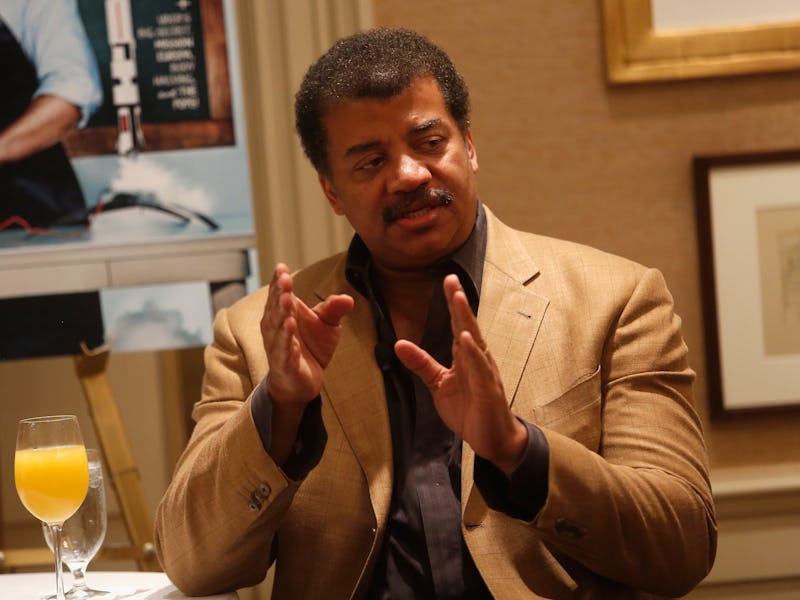People Are Puzzled by Neil deGrasse Tyson’s Shady Hurricane Tweet
'Hmm.'

Whenever a matter of scientific importance rocks the nation, Neil deGrasse Tyson and his barbed comments are never far behind. True to form, on Friday, as Texans prepared for Hurricane Harvey and its “catastrophic” storm surge flooding, the notoriously salty astrophysicist tweeted a snide message about the hypocrisy of climate change deniers.
“Hmm,” the tweet began. “Don’t see much denial of @NOAA climate scientists who have predicted Hurricane Harvey’s devastating path into Texas.”
This typically shady Tyson tweet calls out people who deny long-term predictions about climate change but are willing to pay attention to short-range forecasts about hurricanes. By emphasizing the value of National Oceanic and Atmospheric Administration (NOAA) climate scientists, he’s probably alluding to President Donald Trump’s recent attempts to cut funding to NOAA and the agencies beneath it, which also include the hurricane-forecasting National Weather Service.
But in this tweet, the famously pedagogic scientist was also uncharacteristically imprecise.
As the comment thread on the tweet showed, Tyson’s fans were surprised that he seemed to confuse climate science with meteorology. Hurricanes, as this Twitter user pointed out, are not forecasted by climate scientists.
Tamsin Edwards, a fellow scientist, called Tyson out for exacerbating public confusion about the difference between the two.
A guy named Paul Mosher went hard.
The issue, of course, is that climate science and meteorology respectively align with the study of climate and weather, which aren’t the same thing. As NASA puts it, “Weather is what conditions of the atmosphere are over a short period of time, and climate is how the atmosphere ‘behaves’ over relatively long periods of time.” In this case, a meteorologist would be the person forecasting the path of Hurricane Harvey, while a climate scientist would be the person predicting whether weather events like Hurricane Harvey will become more frequent in the future (yes, probably).
When people confuse climate science and weather, they also confuse their understanding of climate change. It’s one thing to have a particularly hot summer in Houston and another entirely to have a century of particularly hot summers, and knowing the difference is key to being able to see the alarming trends in global climate change.
This semantic debate is an ongoing issue in the scientific community, especially as the Trump administration continues its attempts to downplay the urgency of the climate change threat by making agencies use the term “weather extremes” instead of “climate change.”
While some Tyson apologists tried to argue that he was speaking more broadly about the scientific methods that experts in both fields used to make their predictions, the intense online debate made it clear: Sometimes, even America’s all-knowing didactic mustache messes up.